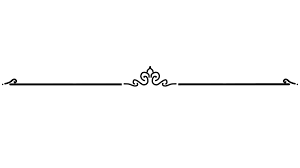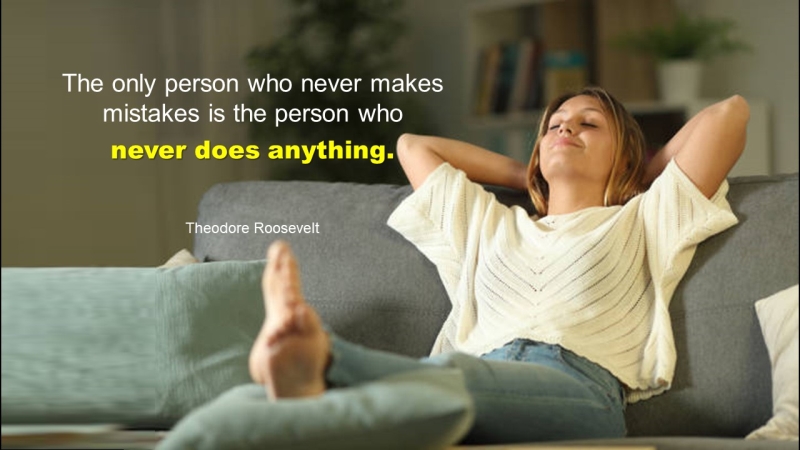HAVE YOU EVER MADE A MISTAKE AND FELT EMBARRASSED, ASHAMED, OR FRUSTRATED? Have you ever avoided taking risks or trying something new because you fear making mistakes? If so, you’re not alone. For many of us, mistakes are associated with negative emotions and experiences, and we tend to fear or avoid them at all costs. However, what if I told you that mistakes could be a powerful tool for personal growth and success?
In this article, we’ll explore the art of learning from mistakes and how they can help you achieve your goals. By embracing mistakes and approaching them with a growth mindset, you can turn them into valuable lessons that will help you improve your skills, gain experience, and achieve your full potential. To learn from mistakes, let’s get started.

To Make No Mistakes: Do Nothing, Take No Risks
Taking action and accepting mistakes as a natural learning process is essential. If you’re not making mistakes, you probably need to try harder or take more risks. Playing it safe and avoiding mistakes might seem easy or comfortable. Still, it’s also limiting your potential and growth.
Furthermore, making mistakes is an essential part of personal and professional development. Through trial and error, we gain experience, insights, and skills to help us improve and achieve our goals. Failure is not a sign of weakness or incompetence but rather an opportunity to learn, adapt, and innovate. Therefore, individuals should embrace their mistakes, learn from them, and progress toward their aspirations.
In addition, taking responsibility for our actions and decisions is crucial. When we make mistakes, we quickly blame others or external circumstances for our failures. However, by doing so, we’re avoiding accountability and missing valuable learning opportunities.
When we acknowledge our mistakes and take ownership of them, we demonstrate maturity, integrity, and a willingness to learn and grow. By doing this, we can keep from making the same mistakes again and encourage others to follow suit, fostering a culture of innovation and constant improvement. Therefore, let us be proactive, take risks, learn from mistakes, and take responsibility for our actions to achieve our full potential.

Learning from Mistakes: Turning Adversity into Advantage
Mistakes may seem like setbacks, but they are opportunities in disguise. By learning from your mistakes, you can gain valuable insights and experience to help you succeed.
Here are some benefits of learning from mistakes:
- Develop Skills: When you make a mistake, you have a chance to identify what you need to improve upon and develop new skills to avoid making the same mistake again. By learning from your mistakes, you can become a better problem-solver, communicator, and decision-maker.
- Gain Experience: Mistakes are a natural part of the learning process, and each mistake provides an opportunity to gain valuable experience. You can learn from your mistakes and improve your future decision-making by thinking back on them and examining what went wrong.
- Improve Performance: Learning from mistakes can help you improve and achieve your goals. Applying the lessons you’ve learned from your mistakes can make you more efficient, effective, and productive.
- Learn from Successful People: Many successful people attribute their achievements to their ability to learn from their mistakes. For example, Thomas Edison famously said, “I have not failed. I’ve just found 10,000 ways that won’t work.” Bill Gates also acknowledges the importance of learning from mistakes, stating, “It’s fine to celebrate success, but it is more important to heed the lessons of failure.”
In short, learning from mistakes is an essential skill for personal and professional growth. By embracing mistakes as opportunities for growth and improvement, you can turn adversity into an advantage and achieve your full potential.
The Psychology of Mistakes: Overcoming Fear and Self-Doubt
Everyone makes mistakes at some point. Mistakes can be challenging to accept and learn from because they can trigger feelings of fear, shame, and negative self-talk. But it’s important to understand that making mistakes is a normal part of learning.
Here are some suggestions for overcoming the psychological barriers to learning from mistakes:
- Reframe Mistakes as Feedback: Instead of viewing mistakes as failures, consider them an opportunity to receive feedback and learn what not to do next time. This shift in perspective can help you embrace mistakes as a valuable learning tool.
- Embrace Challenges: Challenges can be intimidating but provide an opportunity to learn and grow. By embracing challenges and taking risks, you can develop resilience and confidence in your abilities.
- Seek Constructive Criticism: Constructive criticism can be an excellent way to learn from your mistakes. Instead of avoiding feedback, seek it out and use it to identify areas for improvement and growth.
- Cultivate a Growth Mindset: A growth mindset believes that your abilities can be developed through dedication and hard work. By cultivating a growth mindset, you can embrace challenges and mistakes as opportunities for growth and develop greater resiliency in the face of obstacles.
In summary, overcoming the psychological barriers to learning from mistakes requires a shift in mindset and approach. By reframing mistakes as feedback, embracing challenges, seeking constructive criticism, and cultivating a growth mindset, you can use setbacks as springboards for improvement and achievement.

The Art of Learning from Mistakes
Learning from mistakes is a crucial step toward achieving personal growth and success. In this section, we’ll explore the art of turning your mistakes into valuable lessons.
Reflect on the mistake: analyze the causes, effects, and consequences.
It’s essential to take the time to reflect on your mistake and understand what led to it. Ask yourself questions like:
- What circumstances gave rise to this mistake?
- What impact did it have on me and others?
- What could I have done differently to handle the situation?
By analyzing your mistake’s root causes and effects, you’ll better understand the situation and how to improve next time.
Identify the lesson: What can you learn from this mistake? How can you improve next time?
The next step is to identify the lesson or lessons you can learn from your mistake. Some questions to consider are:
- What did I do well in this situation?
- What could I have done differently?
- What will I do differently in the future?
By focusing on what you can learn and improve on, you can turn your mistake into a valuable lesson for personal growth.
Apply the lesson: incorporate the insights and feedback into your strategies and behaviors.
The final step is applying the lesson you learned from your mistake. This means incorporating the insights and feedback you’ve gained into your strategies and behaviors. For example, if you make a mistake in a project, you could implement a new system for checking your work or collaborate more effectively with your team.
Case examples of individuals who learned from mistakes
Examples of individuals or companies that learned from their mistakes and improved their performance are:
- Netflix’s pivot to streaming: After losing millions of subscribers due to a pricing change, it shifted its focus to streaming and original content, leading to its success.
- Oprah Winfrey’s public apology for a controversial interview: After receiving criticism for her handling of a controversial interview, Oprah Winfrey publicly apologized and changed her show’s content and format.
By following these actionable steps and looking to successful examples, you can turn your mistakes into valuable lessons for success.

Conclusion
Mistakes can be valuable for personal growth and success if we approach them with the right mindset and learn from them. As successful people like Thomas Edison and Bill Gates have demonstrated, learning from mistakes can help us develop skills, gain experience, and improve performance. By changing our mindset and approach to mistakes, we can overcome the fear of failure, shame, or negative self-talk and turn mistakes into opportunities for growth.
Learning from mistakes involves reflecting on the mistake, identifying the lesson, and applying the insights to improve our strategies and behaviors. Remember to view mistakes as opportunities for growth and development and approach them with curiosity, openness, and a willingness to learn. As Dale Carnegie once said, “Develop success from failures. Discouragement and failure are two of the surest stepping stones to success.”
CLICK THE IMAGE TO LEARN MORE




